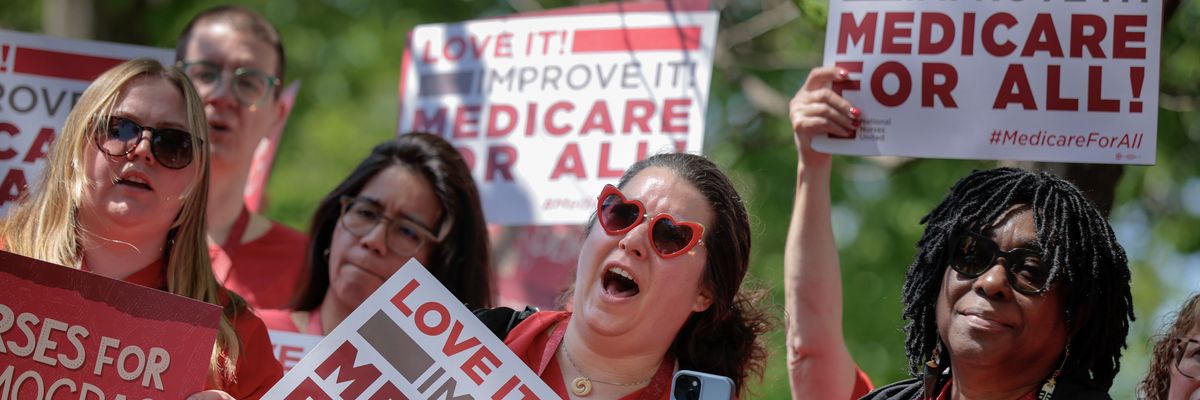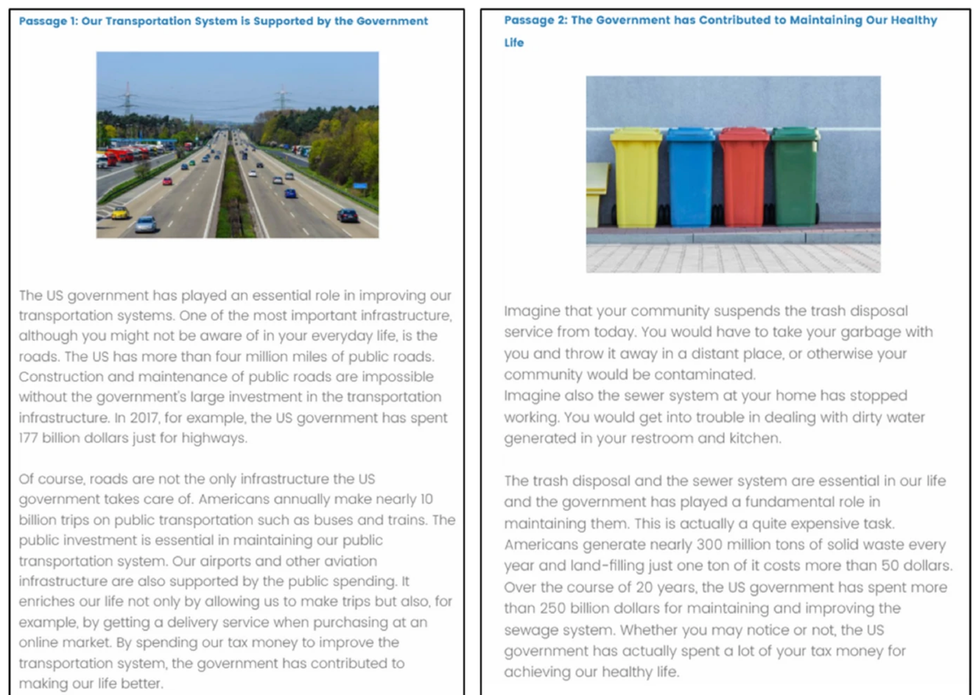
A new study challenges the common assumption that Americans are preternaturally averse to higher taxation, showing that public attitudes become more favorable once people are made aware of the “universal benefits of public goods” funded by their tax dollars.
The study, conducted by Japanese researchers and published last month in the Japanese Economic Review, separated the US-based participants into a treatment group and a control group.
People in both groups were asked questions about their views on government size, spending, and taxation, but those in the treatment group were provided passages explaining the universal benefits of tax-funded transportation systems, public roads, trash disposal, and sewage infrastructure.
Researchers intentionally crafted the passages to highlight the benefits of universal goods, not means-tested programs targeted at low-income Americans.

Before and after reading the above passages, participants in the treatment group were asked: “How much of your taxes do you think are used for public goods and services that benefit all of you?”
They were also asked whether they agree with the following statement: “Regardless of income, everyone in the US more or less benefits from public spending.”
The researchers found that the treatment passages substantially increased support for public spending, larger government, and higher taxes among study participants.
After consuming the provided information on the benefits of public goods, nearly 64% of those in the treatment group said they would support an across-the-board tax increase of 1%. In the control group, support was significantly lower at 52.5%.
“If people become aware that more public goods are provided than they previously thought, the government might politically achieve more redistribution through expanding its size without reducing policy progressivity,” the study authors wrote. “Although we focused on transportation and trash disposal systems, governments provide other public goods. Exploring how our results may or may not generalize to other public goods would be interesting.”
The study was published amid a growing national debate over the for-profit US healthcare system, with Democrats pushing for an extension of tax credits that help millions of Americans afford private insurance plans while Republicans float vague and unworkable alternatives.
Congressional progressives, for their part, have used the healthcare fight to elevate their case for Medicare for All, the only plan on offer that would secure universal healthcare—and at a lower overall cost than the status quo.
Opponents of Medicare for All—which would eliminate premiums, copays, and deductibles—have balked at the taxes Americans would have to pay to fund comprehensive health coverage for everyone in the United States.
But the Japanese Economic Review study suggests that US public opinion on taxes is malleable, particularly when people are informed of the benefits of universal programs.
From Common Dreams via This RSS Feed.
But there’s no real relationship to taxation and federal spending under the current system.
Like, I get the appeal of taxation as a mechanism for curbing inflation. And I get the appeal of universal public services (education, health care, transportation, park services, etc) as both useful amenities for large numbers of people and a base-load employer for the professional working class.
But we’re a country with $35T in national debt that’s mostly invested in propping up Finance and Real Estate and International Trade. Nobody said “we really need to invade Iraq in order to secure the oil, better raise the top marginal tax rate”. Nobody said “AIG is bankrupt, time to increase taxes so we can bail them out”. Nobody said “we need another $40B to backstop Argentina and Israel, better impose a transaction fee on stock trades”. No taxpayer paid for that Wall we built along the US-Mexico border. All of this spending has occurred absent revenue to match.
The idea that we can’t (much less shouldn’t) expand Medicare as a universal program because of the tax cost hasn’t paid attention to US fiscal policy in nearly a century. The reasons for tax policy are totally different from the reasons for public spending.


